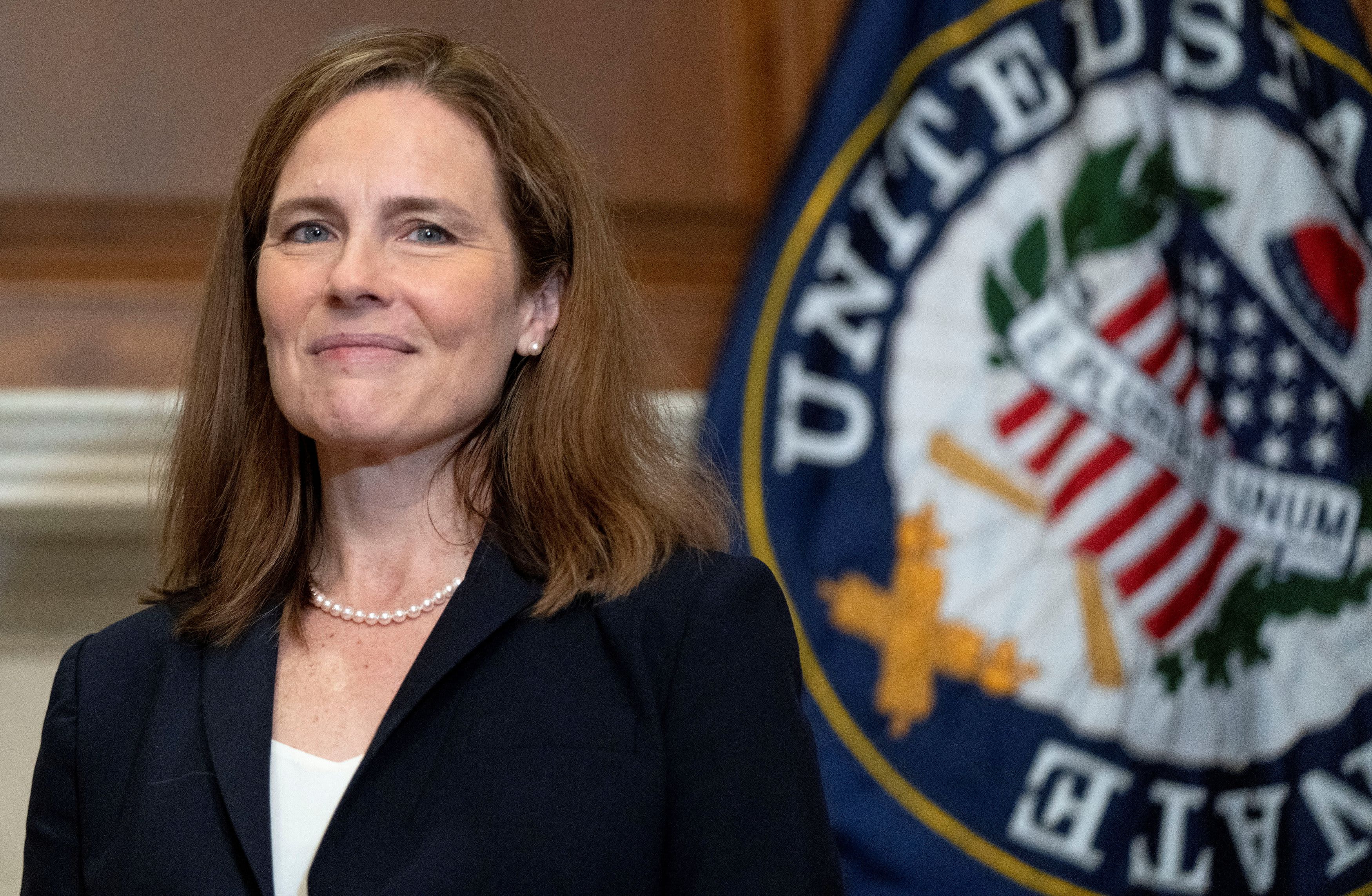
Republicans on the Senate Judiciary Committee voted unanimously on Thursday to advance the nomination of Judge Amy Coney Barrett to the Supreme Court over a boycott from the committee’s Democrats.
The vote paves the way for the full Senate to confirm Barrett to the high court on Monday, ahead of the Nov. 3 election between President Donald Trump and former Vice President Joe Biden.
Trump has repeatedly pressed for Barrett to be placed on the high court in time to resolve any election-related litigation, a request that Democrats see as a plain call for the court’s conservative majority to declare him the winner if the outcome is contested.
The swift action by Senate Majority Leader Mitch McConnell, R-Ky., and Judiciary Committee Chairman Lindsey Graham, R, S-C., to meet Trump’s deadline will make Barrett the first justice in history to be confirmed so close to Election Day.
Senate Judiciary Committee Chairman Lindsey Graham (R-SC) arrives next to U.S. Senator Mike Lee (R-UT) for a Senate Judiciary Committee meeting on the nomination of Judge Amy Coney Barrett to be an associate justice of the U.S. Supreme Court on Capitol Hill in Washington, U.S., October 22, 2020.
Hannah Mackay | Reuters
Barrett, who was a professor at Notre Dame Law School until Trump nominated her to serve on the 7th U.S. Circuit Court of Appeals approximately three years ago, will be the sixth Republican-appointee on the nine-judge Supreme Court, and Trump’s third nominee.
Trump nominated her to the high court last month after the death of Justice Ruth Bader Ginsburg, a liberal icon who served on the bench for 27 years. Ginsburg expressed a dying wish not to be replaced until after the election.
As Ginsburg’s replacement, Barrett is expected to shift the court’s center of gravity decisively to the right, potentially imperiling the Democratic agenda items on health care, abortion access and the Second Amendment.
In focus is a Nov. 10 case the court will hear over the constitutionality of Obamacare, also known as the Affordable Care Act.
While the Democrats did not appear at Thursday’s committee hearing, they left supersized posters of individuals who rely on the law in their seats. Republicans denounced the gesture as theatrics.
Democratic Senators on the Senate Judiciary Committee boycott the committee vote on Amy Coney Barrett to serve as an associate justice on the Supreme Court of the United States during a Senate Judiciary Committee Executive Business meeting in Washington, D.C., U.S., October 22, 2020.
Caroline Brehman | CQ Roll Call | Reuters
Barrett declined to provide specifics about her views on Obamacare during two days of questioning before the committee last week, but reaffirmed her originalist method of interpretation and her affinity for the late Justice Antonin Scalia, the conservative hero for whom she clerked early in her career.
Despite her previous writings that were critical of Obamacare, the conservative said she would approach the Nov. 10 case with an open mind if confirmed. She noted that the upcoming case raises questions about a legal doctrine upon which she had not previously expressed an opinion.
Some progressives were outraged by Democrats’ handling of Barrett’s confirmation hearings, arguing they lent legitimacy to a process at odds with McConnell’s 2016 refusal to even hold hearings for President Barack Obama’s nominee Judge Merrick Garland.
Organizations with power on the left, including Justice Democrats and Demand Justice, have since called for Sen. Dianne Feinstein, D-Calif., the committee’s top Democrat, to step down.
Democrats on Wednesday announced that they would boycott Thursday’s hearing.
“We will not grant this process any further legitimacy by participating in a committee markup of this nomination just twelve days before the culmination of an election that is already underway,” Senate Minority Leader Chuck Schumer, D-N.Y., said in a statement that was joined by the committee’s Democrats.
At the start of the hearing, Graham addressed Democrats’ boycott, saying “we are not going to allow them to take over the committee.”
“They made a choice not to participate,” he said.




